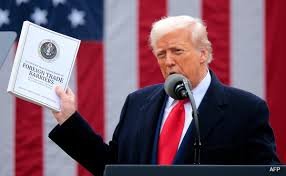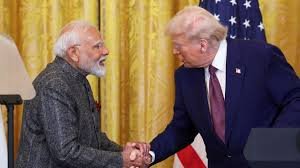New Delhi ( Economy India): India continued its large-scale procurement of Russian crude oil in October despite repeated objections from US President Donald Trump, emerging as the world’s second-largest buyer of Russian crude during the month. According to a new report by the Centre for Research on Energy and Clean Air (CREA), India imported $2.5 billion (₹22,170 crore) worth of crude from Russia in October 2025.
China retained the top position with crude imports valued at $3.7 billion (₹32,820 crore).
Overall, India’s total fossil fuel imports from Russia — covering crude, coal, and oil products — reached $3.1 billion (₹27,490 crore) in October, while China’s total touched $5.8 billion (₹51,440 crore).
Analysts expect December 2025 data to reflect the impact of US sanctions, but India has so far continued purchasing Russian barrels to secure affordable energy supplies.

China Also Led Coal Purchases from Russia
The CREA report highlights China as the largest coal importer from Russia in October, ahead of India and Türkiye.
China purchased $760 million worth of Russian coal.
India imported:
- $351 million worth of Russian coal
- $222 million worth of Russian oil products
Türkiye Becomes Largest Buyer of Russian Oil Products
Türkiye maintained its position as the world’s biggest buyer of Russian refined oil products, importing:
- $957 million worth of oil products (about half of which was diesel)
- $929 million worth of Russian pipeline gas
- $572 million worth of Russian crude oil
EU Still Dependent on Russian Gas
Despite sanctions and political pressure, the European Union remained the largest buyer of Russian gas in October, importing:
- $824 million of LNG and pipeline gas
- $31.1 million worth of Russian crude oil
This highlights the continued complexity of Europe’s energy dependence, even amid geopolitical tensions.

🇺🇸 Impact of Trump’s Sanctions Expected From December
Western nations have been pressuring India and China to reduce their energy ties with Russia, arguing that oil revenues indirectly support Moscow’s war operations in Ukraine.
In October, the Trump administration imposed sweeping sanctions on Russia’s two major oil exporters:
- Rosneft
- Lukoil
These sanctions — which take effect on 21 November — are expected to hit shipping, insurance, and financial transactions connected to Russian oil, potentially slowing December shipments to Asia.
Indian Refiners Cut Russian Oil Orders for December
India has already begun adjusting its crude procurement strategy. As per a Bloomberg report, five major Indian refiners have not placed fresh orders for December deliveries from Russia:
Refiners that skipped December orders
- Reliance Industries
- Bharat Petroleum (BPCL)
- Hindustan Petroleum (HPCL)
- Mangalore Refinery & Petrochemicals (MRPL)
- HMEL (HPCL-Mittal Energy)
These companies accounted for two-thirds of India’s total Russian oil imports this year.
Who is still buying?
- Indian Oil Corporation (IOC) — sourcing only from non-sanctioned suppliers
- Nayara Energy — still dependent on Russian supply (Rosneft holds 49% stake)
🔄 India Now Seeking Alternative Suppliers
Russia supplied around 36% of India’s crude this year. With sanctions tightening, Indian refiners are turning to diversified supply sources.
New procurement plans
- IOC has floated tenders to buy 24 million barrels from the US and other regions for Jan–Mar 2026.
- HPCL has secured 4 million barrels for January from US shale producers and Middle Eastern suppliers.
Senior officials from Saudi Aramco and ADNOC have recently held meetings with Indian authorities, assuring uninterrupted supplies amid changing geopolitical conditions.
🛢️ Trump’s 50% Tariff on India Deepens Energy Diplomacy Strain
President Trump has so far imposed 50% total tariffs on India:
- 25% Reciprocal Tariff (effective from 7 August)
- 25% Penalty Tariff for continuing to purchase Russian oil (effective from 27 August)
The US argues that India’s purchases are indirectly supporting Russia’s war economy. Trump has publicly stated multiple times that revenue from oil buyers like India “helps fuel the conflict in Ukraine.”
Geopolitical analysts expect India’s December and January energy import patterns to reflect a major shift:
- Reduced Russian crude volumes
- Higher dependence on the US and Middle East
- Rising global oil prices due to supply restructuring
- Increased freight and insurance costs caused by sanctions
However, officials in New Delhi maintain that India will continue to prioritize energy security, affordability, and diversification while balancing diplomatic ties with the US and Russia.
(Economy India)












